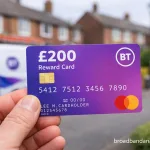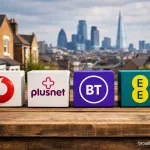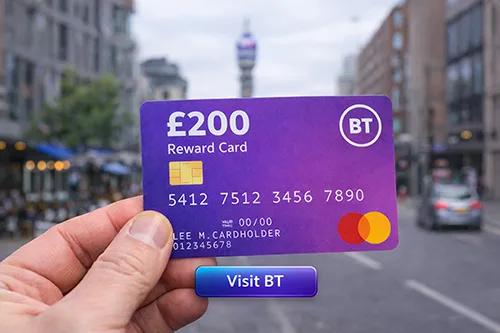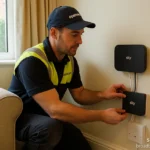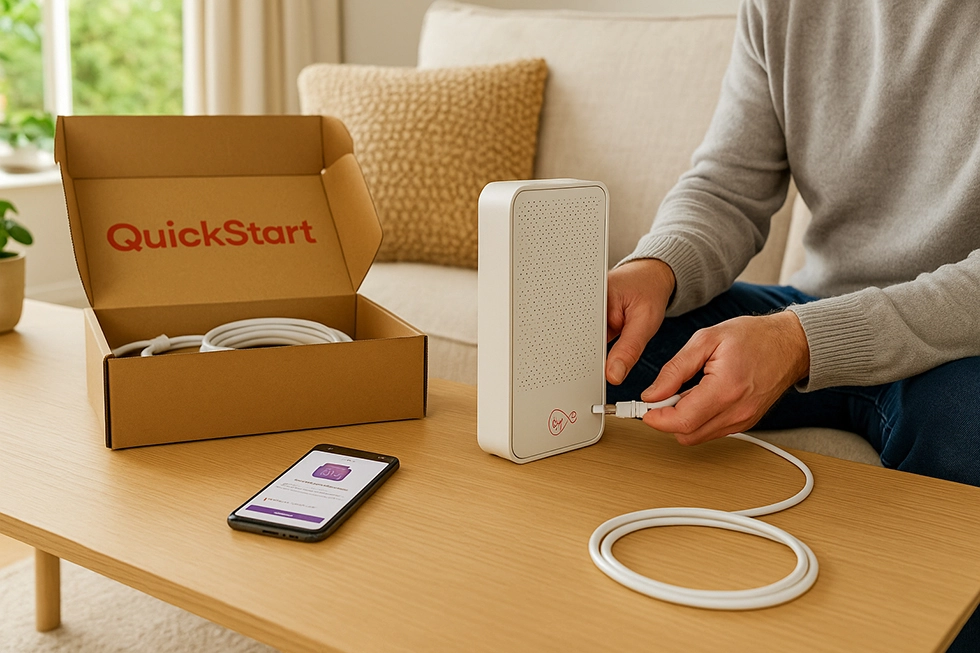The UK is moving away from old copper-based broadband services such as ADSL and FTTC. Openreach, which operates most of the national fixed-line infrastructure, is under pressure to speed up this transition ahead of the Public Switched Telephone Network (PSTN) switch-off scheduled for January 2027.
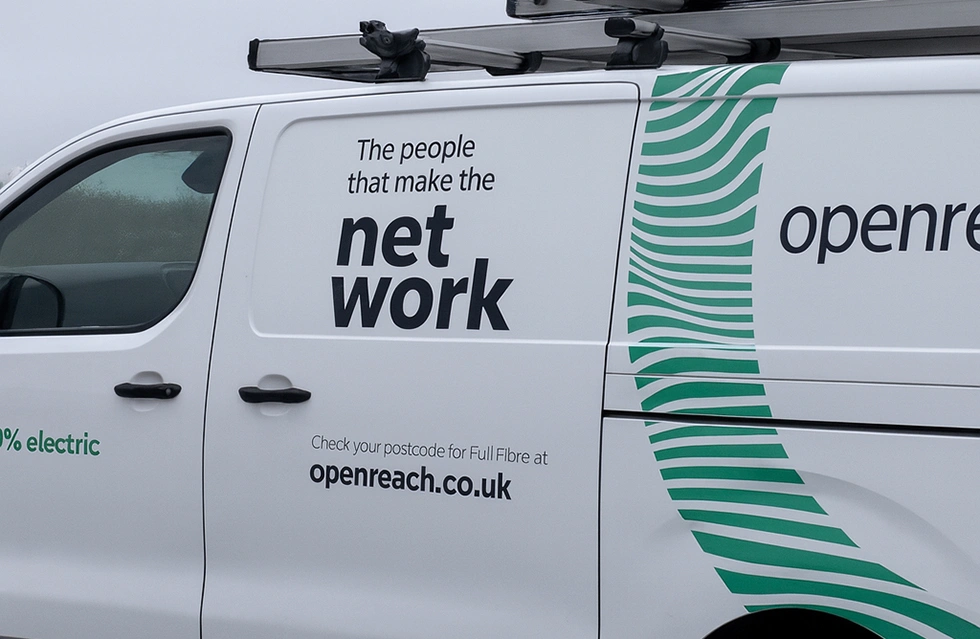
To help this process, internet providers can use what’s called “proactive migration” – where a customer on copper is booked for a fibre installation appointment, with the option to confirm or change the date.
As part of this strategy, Openreach has now introduced a new financial incentive for internet providers, designed to encourage faster take-up of fibre-to-the-premises (FTTP).
What the New Discount Involves
The discount allows ISPs that move customers from copper to fibre to place them on faster full fibre packages, such as 330Mbps, 550Mbps or even 1Gbps, while paying the rental price of a much lower 80/20Mbps service. The promotion will be available for up to 24 months and is open between 10 October 2025 and 9 April 2026.
By cutting wholesale costs in this way, Openreach is making it cheaper for ISPs to give customers a major speed upgrade without significantly increasing their monthly bills. This could speed up the migration process and help customers benefit from much higher download and upload speeds sooner.
Why Rival Networks Are Objecting
Not everyone sees this as good news. Alternative networks (altnets), which are smaller fibre builders competing against Openreach, argue that discounts of this kind can distort competition. Many of these operators, represented by groups such as the Independent Networks Co-operative Association (INCA), believe that heavy price promotions risk pulling customers away from rival fibre providers at a time when those companies are already facing financial strain.
CityFibre, the UK’s largest altnet, has publicly said Ofcom should closely review the offer to check it aligns with the regulator’s strategy for encouraging sustainable, long-term competition.
Ofcom’s Response and Regulatory Context
The regulator has confirmed that it was notified of the offer, but it does not pre-approve Openreach’s pricing schemes. Instead, Ofcom relies on stakeholders to raise complaints if they believe the discounts undermine competition. Ofcom has made clear that its wider objective is to encourage fibre investment across the UK, and that includes keeping a level playing field between Openreach and altnets.
This issue comes at a time when Ofcom is consulting on its next major Telecoms Access Review (TAR), which will set the rules for fixed broadband markets between 2026 and 2031. The review suggests keeping price regulation on legacy copper services but giving more flexibility on faster full fibre pricing, with a view to accelerating rollouts. Final decisions on that framework are due in March 2026.
Openreach’s Position
Openreach has defended the promotion, saying that competition should ultimately deliver better outcomes for households. The network provider maintains that the new pricing is about helping customers make the jump from copper to fibre, while still giving rivals the chance to compete in areas where multiple fibre networks overlap.
With more than 20 million premises already able to order its FTTP, Openreach is on track to extend that to 25 million by December 2026 and potentially 30 million by 2030. Its expanding coverage, combined with discounts like these, puts further pressure on smaller fibre builders that may struggle to match its scale.
Why Altnets Are Nervous
In earlier years, altnets often had a clear advantage: faster fibre speeds and lower prices compared with Openreach’s limited FTTP footprint. But as Openreach has ramped up deployment and reduced wholesale charges, that advantage has narrowed. At the same time, many altnets are battling higher borrowing costs, rising build expenses, and slower customer take-up. Several have already cut back expansion plans or reduced staff, with some industry watchers expecting consolidation.
From that perspective, a deep discount from the incumbent can make it harder for smaller players to win customers, even if they offer symmetrical upload speeds or competitive deals.
What It Means for Customers
For households still on copper, the promotion could mean an earlier upgrade to much faster fibre without a big increase in price. Customers could move directly to gigabit-level broadband at the cost of a mid-tier service, improving streaming, gaming and remote working experiences.
The risk is that if discounts discourage smaller networks from expanding, long-term competition could weaken, leaving consumers with fewer choices in future. Ofcom’s challenge is to weigh up these short-term gains against potential longer-term effects on the broadband market.
What Happens Next
The promotion begins on 10 October 2025. Over the six months it runs, industry and regulators will be watching closely to see how many upgrades are triggered and whether altnets can still compete effectively in overlapping areas. Ofcom’s upcoming policy decisions in 2026 will also determine whether Openreach can continue using such promotions or whether tighter rules will be imposed.
